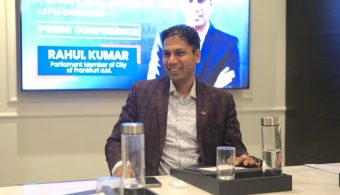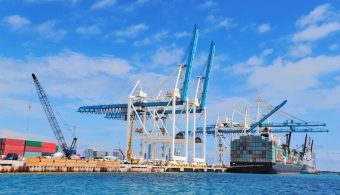India’s External Affairs Minister Dr. S. Jaishankar begins a key six-day visit to Europe today, with Germany as a central stop on the diplomatic tour that also includes the Netherlands and Denmark. This marks his first foreign visit following the deadly Pahalgam terror attack and subsequent military escalation with Pakistan.
Germany Visit to Focus on Strategic Partnership, Terror Briefing
The visit to Germany, scheduled well in advance, comes at a significant time as the new government under Chancellor Friedrich Merz takes charge. Jaishankar is expected to meet German Foreign Minister Johann Wadephul, with whom he last engaged on May 8, shortly after India launched Operation Sindoor—a military response that destroyed nine terror camps in Pakistan and Pakistan-Occupied Kashmir.
Germany remains one of India’s most important strategic and economic partners in Europe, with bilateral trade exceeding $30 billion. The visit is expected to cover a broad spectrum of discussions, including economic cooperation, green energy, technology transfers, and evolving global security challenges.
Indian officials indicate that Jaishankar will also brief the German leadership on India’s zero-tolerance approach to terrorism and the military developments that unfolded post-Pahalgam. The German side is likely to be apprised of India’s perspective on regional security, the continuing threat of cross-border terrorism, and the importance of coordinated global efforts to counter such threats.
Highlighting Operation Sindoor and India’s Security Concerns
India launched Operation Sindoor in the early hours of May 7, targeting terror launchpads following the April 22 attack in Pahalgam, which killed 26 people, including civilians and tourists. Pakistan retaliated with attempted strikes on Indian military installations from May 8 to May 10. The brief but intense confrontation ended with a mutual cessation of hostilities on May 10.
Jaishankar’s visit aims to not only inform key European allies of these developments but also to reinforce India’s commitment to defending its sovereignty and people from externally sponsored terrorism.
Stopovers in Netherlands and Denmark Added After Attack
While the Germany leg was pre-scheduled, Jaishankar’s visits to the Netherlands and Denmark were added recently, reflecting India’s intention to update European partners on its counterterrorism stance and regional security posture.
In both countries, Jaishankar will engage with political leadership and counterparts to discuss bilateral relations, technology partnerships, climate action, and global issues of shared concern.
The Ministry of External Affairs stated, “The External Affairs Minister will hold comprehensive discussions on the full range of bilateral ties as well as regional and global matters of mutual interest.”
Strengthening Europe Ties Post-Crisis
The diplomatic tour underscores New Delhi’s strategy to maintain strong communication with key global partners and consolidate its relationships in Europe amid a shifting geopolitical environment. Germany, in particular, is seen as a vital interlocutor in Europe as India looks to deepen defence, trade, and climate partnerships under the India-Germany Strategic Partnership framework.
With terrorism, regional stability, and technological cooperation high on the agenda, Jaishankar’s Europe visit is poised to reaffirm India’s global engagement and its readiness to collaborate with like-minded nations on shared challenges.



